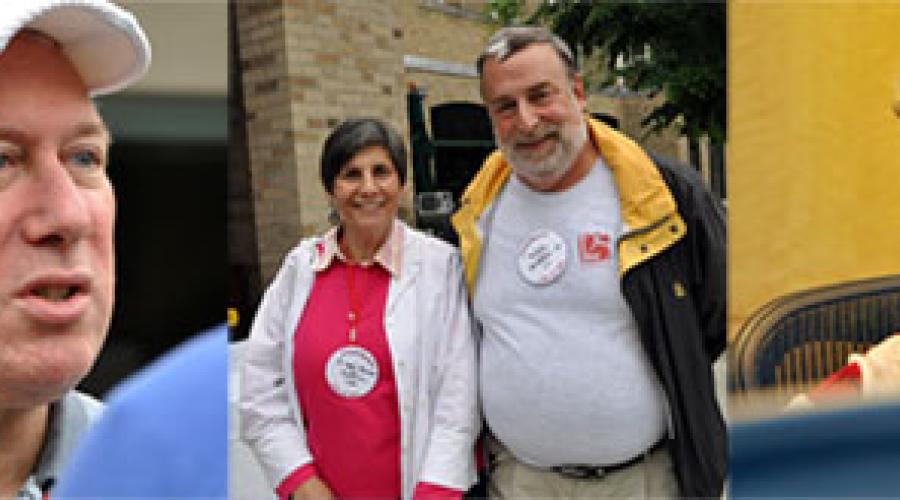
One Degree, Many Fields
An ILR education travels well.
The proof might be in the disparate careers to which alums returned after gathering for Reunion Weekend this month.
Eileen Barkas Hoffman '69 is a mediator with the Federal Mediation and Conciliation Service in the Department of International and Dispute Resolution Services, based in Washington, D.C.
Much of her work has been in international arenas.
Recent projects include dispute resolution skills training in China, Cambodia, Indonesia, Eastern and Central Europe, the Philippines, Uganda, Cambodia, Iceland, Latvia and Lithuania.
Hoffman, winner of ILR's Groat Award in 1991, also designs dispute resolution/mediation services and programs for new mediators, labor, management and government officials.
ILR "has been particularly relevant" to her career, she said.
While at ILR, Hoffman studied for a year at the London School of Economics, competed on the university debate team, won the Ives Award and was active in Cornell student government.
She also met Richard B. Hoffman '67, whose legal career has taken a different track, into justice management and judicial administration.
Hoffman, based in Washington, was executive director of the National Prison Rape Elimination Commission, an independent panel established by Congress.
He recently directed a project to strengthen the Indonesian supreme court and co-managed a study of the Washington, D.C., criminal justice system.
Hoffman's international work has included court projects in Serbia, Kyrgyzstan, South Africa, Lithuania, Pakistan, Russia and many other nations.
While at ILR, Hoffman was managing editor of The Cornell Daily Sun.
Nancy Sverdlik '79 returned for her thirtieth reunion and recalled a time she thought she would never graduate.
A year into ILR, "my eyes glazed over. I hated it. I wanted to transfer" to Syracuse University, she said.
"But, then, I took my first course in HR. Oh, I thought, I could do this," said Sverdlik.
She is vice president, human resources, for the Depository Trust & Clearing Corp., a New York City-based post-trade financial services company that settled more than $1.88 quadrillion in securities transactions in 2008.
Learning how to learn and how to make assessments was a key part of her ILR education, said Sverdlik, whose job often involves diagnosing situations and resolving conflicts.
"ILR has stood me in good stead, professionally and academically," she said.
"What brings me back" to reunions, she said, "are the relationships."
ILR graduates form an expansive informal business-to-business network, said Sverdlik, noting the network connects her to expertise in almost any industry.
One of Sverdlik's professional confidantes is Michael Furman '79.
Senior director, human resources, of Teva Pharmaceuticals USA, Furman said the human resource field has evolved in recent decades from "personnel" management to a broader, more business-oriented role in organizations.
Laws are constantly changing, too, he said, so the ILR network becomes a critical resource for connecting with experts.
The ILR curriculum stresses skills for assessing and thinking through issues, Furman said.
It also provides an historical framework from which to view and respect labor, he said. "People did courageous things and we benefit from that today."
Investment banker Tanner Cerand '04 attended his first ILR reunion this month.
Cerand, who works for the Stabfund Fund of UBS Investment Bank in its Manhattan office, said he was excited to catch up with people, "especially in these economic times."
An ILR background has been helpful in the financial world, he said.
"One of the things I found really useful was the OB (organizational behavior) for interacting with people on a professional level, whether you’re the subordinate or higher up," said Cerand, whose father and two sisters are also ILR alums.
"My dad always pitched the merits of ILR as a great background for business," Cerand said.


